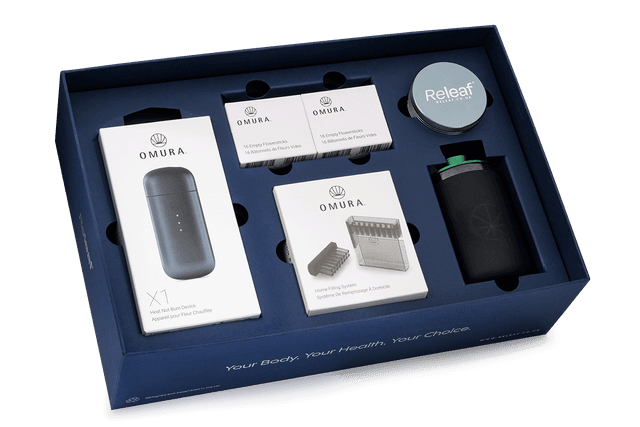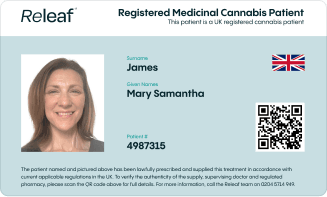Psoriasis is a chronic, inflammatory condition that’s linked to the body’s immune system. It affects around 2 in 100 people in the UK. The disease causes an overproduction of skin cells. This results in raised, scaly patches appearing on the sufferer’s body. Around 30% of people living with psoriasis also have psoriatic arthritis. What’s more, psoriasis patients are also known to have an increased risk of heart disease, stroke, kidney disease, sleep and respiratory problems, depression and anxiety, high blood pressure, diabetes, and obesity.
So, does CBD oil help with skin conditions, and in particular, psoriasis? Keep reading to learn more.
What are the symptoms of psoriasis?
Psoriasis is an immune-mediated disease that causes raised, scaly patches to appear on the skin. These patches are the result of systemic inflammation and generally look pink or red with white or silvery flakes. Patches of inflamed skin can be itchy or sore and normally appear on the elbows, knees, scalp and lower back, but can appear anywhere on the body.
The severity of psoriasis symptoms continuously fluctuates. Many people living with psoriasis find that their flare-ups are triggered by stress, infection, or injury. The condition can run in families, though the exact role of genetics in causing the disease is still not fully understood.
CBD oil and its properties
CBD, or cannabidiol, is the second most prevalent active ingredient in cannabis. It is a phytocannabinoid, meaning a cannabinoid produced outside of the human body. On its own, it does not cause a ‘high, and is totally non-intoxicating. In fact, most CBD oil is derived from hemp, a cousin of cannabis, or manufactured in a lab. Though research is still ongoing, studies have shown that CBD oil may help bring relief for a range of symptoms, including:
- Anxiety
- Insomnia
- Chronic pain
- Inflammation
- Addiction
Is CBD oil good for psoriasis?
Over the past few years, CBD oil has become a popular alternative treatment option for people living with psoriasis. CBD oil can potentially benefit psoriasis sufferers in a number of ways. Importantly, it has been shown to help reduce inflammation. This can make patches of psoriasis more comfortable and reduce reddening. The application of topical CBD oil has also been shown to help improve skin elasticity and hydration.
As well as treating the symptoms of psoriasis, CBD oil can help to prevent flare-ups. Many people living with the condition find that their symptoms can be triggered or aggravated by stress and anxiety. Stress has also been shown to worsen itching, making its management even more important.
Several double-blind studies have shown that CBD is effective in significantly reducing the stress response and was non-inferior to pharmaceutical comparators when included. Though more research is needed, these findings indicate that the use of CBD oil for psoriasis sufferers could have real benefits.
CBD oil for psoriasis patients – What the research is saying
A number of recent studies have indicated the potential of a psoriasis cannabis treatment. One CBD psoriasis study published in 2020 showed that patients with scalp psoriasis or seborrhoeic dermatitis, who used a shampoo containing CBD, saw a reduction in the severity of scalp inflammation, itching and burning. And a 2019 study showed that patients who applied a topical CBD ointment to skin lesions twice a day for two months saw improved skin hydration and elasticity.
CBD oil may also help with conditions linked to psoriasis like psoriatic arthritis, insomnia, and anxiety. Its anti-inflammatory properties may have a real impact on joint pain and stiffness and help people living with psoriasis to reduce their levels of anxiety and improve sleep.
The benefits of CBD oil for psoriasis
Though more research is needed on CBD oil as a treatment for psoriasis, anecdotal evidence suggests it can benefit psoriasis sufferers in a number of ways. These include:
- Reduced itching
- Reduced inflammation
- Improved sleep
- Reduced levels of stress and anxiety
Safety and potential side effects of CBD oil application for psoriasis
Though research into CBD oil and its potential benefits is stepping up, more information is needed to conclusively say how the product impacts the body and treats a range of conditions. Research evaluating the safety of CBD oil is currently underway but, so far, no serious safety concerns have been raised for people taking moderate doses.
However, it’s important to be selective when choosing your CBD product, as not all are made to the same high standards. Look for products that have the CBD content stated clearly on the packaging (listed as a percentage of in mg), and ones that have a Certificate of Analysis available on request.
The medicinal cannabis sector is held to a higher regulatory standard than products sold over the counter, so it is always recommended to seek the advice of a doctor before beginning any new treatment plan, and to source your CBD oil through them if possible.
Choosing and using CBD oil for psoriasis
Different CBD oil products are suitable for treating different symptoms. People with itchy, inflamed patches of skin, may want to use a topical cream twice a day to reduce swelling and improve skin elasticity.
Insomnia, stress, and anxiety can potentially be treated with a range of CBD products including pills, drops, and vapes. Muscle inflammation may be eased with topical sprays and creams.
Though there aren’t currently any official dosage guidelines available, many people with psoriatic arthritis report taking 20–40 milligrams per day with good results. Some opt to take higher doses during a flare-up. For specific dosage advice, always refer to a doctor that is both registered to prescribe medicinal cannabis, and one that has experience doing so for psoriasis.
When choosing a CBD treatment, look for products that are sourced from organic hemp grown without the use of harmful pesticides. It’s also important to select products that use full-spectrum CBD to gain all the benefits of this powerful plant. Finally, look for a manufacturer that uses CO2 supercritical extraction, rather than alcohol or butane extraction, to preserve the cannabinoids and terpenes naturally found in hemp.
Conclusion
So, can cannabis oil cure psoriasis?
No, not that we know of.
However, emerging scientific evidence suggests that a lot of people living with the condition experience reduced symptoms when taking CBD products. Although more studies are needed to assess the efficacy of CBD oil as a psoriasis treatment and to understand its impact on the disease, research indicates that CBD products can significantly improve the lives of people living with psoriasis.
If you would like to learn more about the potential of medicinal cannabis in all its forms, we are here to help.
Releaf understands the importance of medical cannabis in treating various medical conditions. With our tailored monthly packages, specialist consultations for medical cannabis, and a unique medical cannabis card for protection, you can access the treatment you need without worrying about the stigma.






